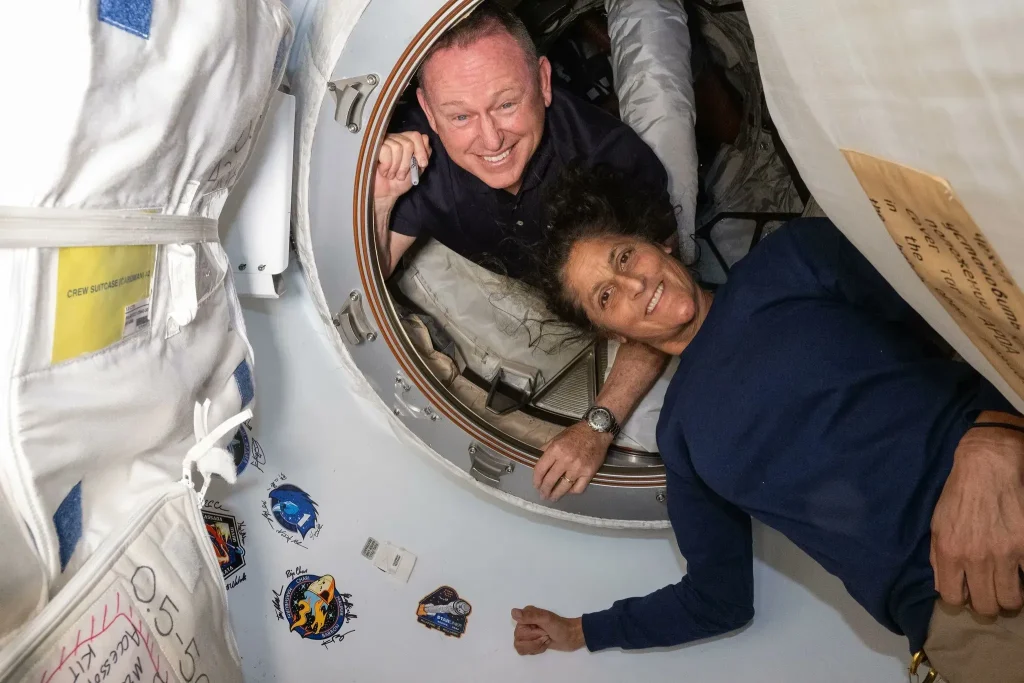NASA astronauts Butch Wilmore and Sunita Williams, who have been on the International Space Station (ISS) since last September, will return to Earth earlier than expected. Initially scheduled for June aboard Boeing’s Starliner, their return has been moved up to mid-March using a SpaceX Dragon capsule.

SpaceX Dragon Capsule Swap
NASA had planned to send the next crew with a new SpaceX Dragon capsule. However, due to additional work required on the new spacecraft, NASA decided to use an older Dragon capsule for the upcoming launch on March 12. This change allows Wilmore and Williams to return sooner, shortening their extended stay.
Starliner Delays Led to Reassignment
Wilmore and Williams were originally part of a Boeing Starliner test flight meant to last a week. However, technical issues forced NASA to send Starliner back to Earth empty, leading to their reassignment to SpaceX. Further delays in the launch of their replacements prolonged their stay on the ISS.
Private Mission Postponed
The Dragon capsule assigned for their return was initially reserved for a private Axiom Space mission carrying astronauts from Poland, Hungary, and India. That mission has now been postponed, possibly until later this spring.
Crew Rotations and Mission Adjustments
NASA follows a strict policy of ensuring a new crew arrives before sending the current team home. Crew-9, which launched in September, was initially meant to carry four astronauts but only took two—leaving space for Wilmore and Williams on the return trip. The upcoming Crew-10 mission, including astronauts from NASA, Japan, and Russia, will replace them.
NASA and SpaceX Adjustments
This decision comes just two weeks after NASA announced efforts to bring Wilmore and Williams back quickly. The move follows former President Donald Trump and SpaceX CEO Elon Musk’s remarks about expediting their return.
NASA and SpaceX’s capsule swap aims to bring an end to Wilmore and Williams’ unexpectedly long stay, which recently crossed the eight-month mark.
